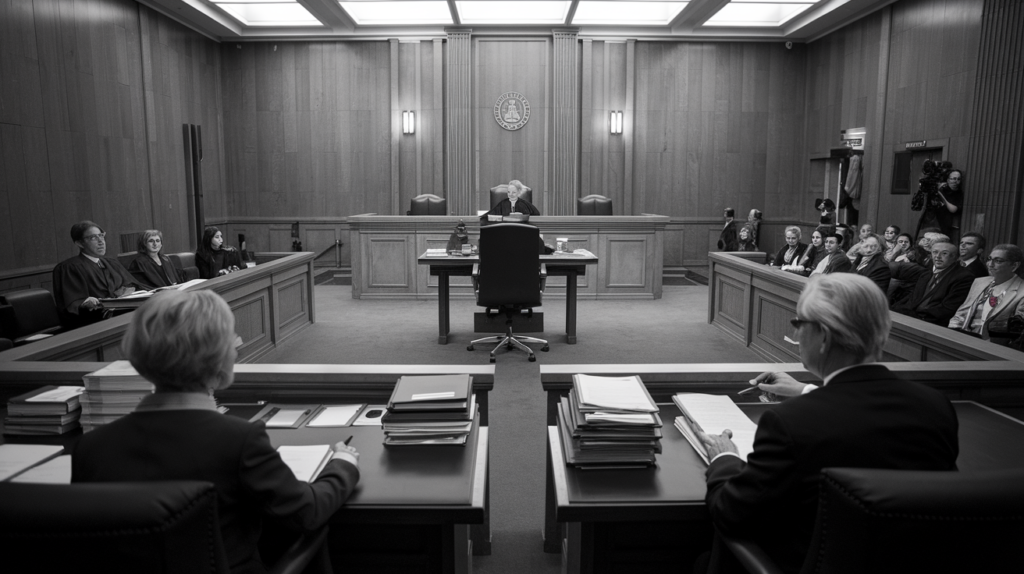What is an Appeal?
An Appeal is, “The complaint to a superior court of an injustice done or error committed by an inferior one, whose judgment or decision the court above is called upon to correct or reverse.” (Black’s Law Dictionary 124. 4th Ed. Rev. 1968)

The appeal process involves a losing party requesting a higher court to reconsider a ruling or decision made at trial. Most appeals take place in an appellate court. The party making an appeal is known as the appellant, while the original winning party is known as the appellee or respondent. Common errors that can be considered proper grounds for appeal may include legal application errors by a sitting judge, procedural errors conducted by attorneys, or evidence issues such as improper evidence being allowed in court or important evidence being wrongfully excluded from court. After arguments from both the appellant and appellee as to why a court’s decision is either proper or not, the appellant court will decide to affirm, reverse, or remand that decision. When a decision is remanded, that particular case is sent back to a lower court for a new trial or other proceedings.
An appeal can only be made after a final judgment is made. A case can not be appealed when it is ongoing or if facts of the case are in dispute. Rulings in cases such as Bowersock v. Missouri Valley Drainage Dist. of Holt County clarify that appeals are continuations of existing lawsuits, not lawsuits themselves. While appeals may lengthen the legal process, they are seen as vital parts of the justice system. They exist to insure that errors or issues don’t result in the wrong rulings.
More information about Appeal
Workers’ Compensation for Commercial Truck Drivers in Pennsylvania
Professional truck drivers keep Pennsylvania’s economy moving, transporting essential goods across our highways and local roads every day. With this demanding job comes significant physical risk. From accidents on busy interstates to cargo loading injuries, truck drivers face workplace hazards that can lead to serious harm and lost income.
Pennsylvania’s workers’ comp system provides important protections for injured truck drivers, offering coverage for medical expenses and lost wages associated with work-related injuries. However, the path to receiving these benefits isn’t always straightforward, especially for injured workers working as independent contractors or those facing claim denials from employers and insurance companies.
 At Munley Law, our workers’ compensation attorneys understand the unique challenges commercial truck drivers encounter when seeking benefits. Our firm has spent decades helping injured drivers secure the medical care and wage replacement they need to recover and support their families. […]
At Munley Law, our workers’ compensation attorneys understand the unique challenges commercial truck drivers encounter when seeking benefits. Our firm has spent decades helping injured drivers secure the medical care and wage replacement they need to recover and support their families. […]
More information about Appeal
Pittsburgh Car Accident Lawyer
When you’re injured in a car accident in Pittsburgh, you need an experienced Pittsburgh car accident lawyer to protect your rights and secure the compensation you deserve. At Munley Law, our auto accident attorneys have a proven track record of successfully representing car accident victims throughout Western Pennsylvania.
Our legal team understands the physical, emotional, and financial toll that serious car accidents take on victims and their families. We handle all aspects of your case—from investigating the crash and gathering evidence to negotiating with insurance companies and representing you in court if necessary.
Don’t face the aftermath of a serious car accident alone. Contact Munley Law today for a free, no-obligation consultation with a Pittsburgh car accident lawyer. Call or fill out our online form to discuss your case and learn how we can help you move forward.
How Can Pittsburgh Car Accident Attorneys Help With My Case? […]
Read MoreMore information about Appeal
Upper Darby Workers’ Compensation Lawyer
Workers’ compensation protects employees in Upper Darby who suffer injuries or illnesses on the job. Pennsylvania law requires most employers to carry workers’ comp insurance, but securing benefits in a successful claim is not always straightforward. At Munley Law, we’ve spent over 60 years helping injured workers get the compensation they need after workplace accidents.
If you suffered an injury performing your job duties, don’t let insurance companies minimize your claim or deny your benefits. Contact Munley Law today for a free consultation with our Upper Darby workers’ compensation attorneys. Our experienced legal team has recovered millions in benefits for injured workers throughout Pennsylvania, and we can help you file your claim or appeal.
What Does Workers’ Compensation Cover in Upper Darby?
 Pennsylvania’s workers’ compensation system protects Upper Darby employees injured on the job. The Pennsylvania Workers’ Compensation Act established this no-fault insurance system, […]
Pennsylvania’s workers’ compensation system protects Upper Darby employees injured on the job. The Pennsylvania Workers’ Compensation Act established this no-fault insurance system, […]
More information about Appeal
Sunbury Personal Injury Lawyer
After being involved in an accident, your life can turn upside down. With mounting medical expenses, lost wages, property damage, and the emotional distress you’ve been through, you may need some help taking legal action. This is where Munley Law comes in. For more than 60 years, our Sunbury personal injury lawyers have helped injury victims recover compensation for their catastrophic injuries.
where Munley Law comes in. For more than 60 years, our Sunbury personal injury lawyers have helped injury victims recover compensation for their catastrophic injuries.
If you or a loved one were hurt due to someone else’s negligence and are looking for personal injury lawyers serving Sunbury, call the Northumberland County personal injury law firm of Munley Law to begin case evaluations.
Personal Injury Cases We Handle in Sunbury
Munley Law will take on the insurance company and liable parties for your personal injury claims. Below are the personal injury practice areas we commonly see.
Car Accidents
In 2022, 660 car accidents were reported in Northumberland County. […]
Read MoreMore information about Appeal
King of Prussia Workers Compensation Lawyer
A King of Prussia workers’ compensation lawyer at Munley Law helps injured employees secure the benefits they need after workplace accidents. Our legal team understands the challenges workers face in Montgomery County’s diverse industrial, healthcare, and commercial sectors. From warehouse injuries at the King of Prussia Mall to construction accidents along US-422, we guide clients through Pennsylvania’s workers’ compensation system to ensure they receive proper medical care and wage loss benefits.
With decades of experience representing injured workers throughout southeastern Pennsylvania, we understand how much getting injured on the job can affect your life. Whether you were hurt in a manufacturing facility, injured in an office environment, or experienced a healthcare-related accident, our attorneys work directly with you to build a strong claim. We handle your case while you focus on recovery.
Types of Workplace Injuries We Handle in King of Prussia, PA
Workplace accidents in King of Prussia reflect the area’s position as Montgomery County’s commercial center. […]
Read More








